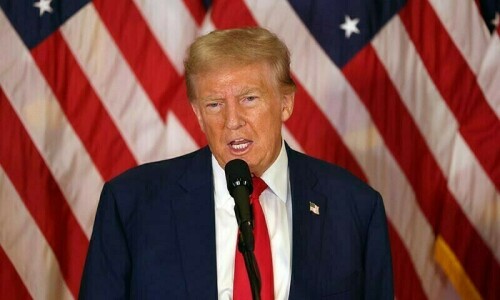The U.S.-Pakistan courting has constantly been complex, formed by shifting worldwide alliances and home priorities. With the 2024 U.S. Elections drawing close, experts expect a marked impact on how Pakistan can be perceived below a potential Donald Trump presidency. His management is expected to continue viewing Pakistan through a “China, India lens,” highlighting the geopolitical demanding situations the US faces.
A History of Strained Relations
During Trump’s first term, U.S.-Pakistan ties were described as anxious and reduced engagement. Trump management cut $1.3 billion in army resources, citing Pakistan’s alleged harbouring of militants and the absence of cooperation in Afghanistan. At the same time, Trump reinforced the U.S.-India relationship, designating India as a key best friend in countering China’s impact on South Asia.
If re-elected, Trump’s “America First” policy will likely prioritize U.S. monetary and strategic interests, align with India, and scrutinize Pakistan’s developing ties with China. The China-Pakistan Economic Corridor (CPEC), a crucial component of Beijing’s Belt and Road Initiative, can also face expanded scrutiny, forcing Pakistan to navigate sensitive diplomatic waters.
How Trump’s Presidency Could Reshape U.S.-Pakistan Dynamics
1. A Closer Look at the China Factor
Under Trump, the U.S. intensified its rivalry with China, a fashion anticipated to improve. Pakistan’s strategic alignment with China makes it a focal point in this power conflict. Trump’s management may stress Pakistan to limit its cooperation with Beijing, mainly on CPEC, whilst supplying financial incentives as a counterbalance.
2. Strengthening Ties with India
The Trump management emphasised building stronger members of the family with India as part of its Indo-Pacific method. A second Trump term could deepen this partnership through defence agreements and technological collaborations, creating further tension in U.S.-Pakistan relations. Pakistan fears this could embolden India in its regional disputes, including Kashmir.
3. Reduced Bilateral Engagement
With the U.S. Army no longer in Afghanistan, Washington’s reliance on Pakistan for counterterrorism has diminished. This shift could lead to reduced security cooperation, making Pakistan increasingly reliant on Chinese investment and support.
Navigating Diplomatic Challenges Under Trump
Pakistan will need to carefully balance its ties with the U.S., India, and China. While economic relations with the U.S. remain crucial—Pakistan exports $8 billion annually to the American market—its growing dependency on Chinese infrastructure and loans adds complexity to these interactions.
Moreover, Pakistan’s role in the Muslim world and its vocal support for Palestine add another layer to its foreign policy. Muslim-American voters’ discontent with current U.S. policies in Gaza and Lebanon might influence electoral dynamics, indirectly impacting diplomatic relations.
What a Harris Presidency Could Mean for Pakistan
In contrast, a Kamala Harris-led administration would likely take a more nuanced approach. Building on Biden’s policies, Harris could focus on multilateral cooperation, offering Pakistan opportunities for security collaboration and economic support. However, this approach would likely come with increased scrutiny of Pakistan’s domestic politics, including its democratic processes and human rights record.
.
Conclusion: A Delicate Balancing Act
Whether Trump returns to the White House or Harris assumes office, Pakistan will remain entangled in the larger U.S. strategy to counter China and strengthen ties with India. Experts agree that Pakistan must adopt a pragmatic and adaptable approach to safeguard its national interests while navigating these evolving dynamics.
Related Videos
This geopolitical shift underscores the importance of careful diplomacy as Pakistan positions itself amid the U.S.-China-India triangle. Balancing these relationships will be crucial for its stability and global standing.
Keywords:
- Trump Pakistan relations
- U.S.-China rivalry and Pakistan
- Pakistan geopolitical challenges
- India, Pakistan, and U.S. strategy
- Trump’s foreign policy 2024
- Pakistan under U.S.-China lens
